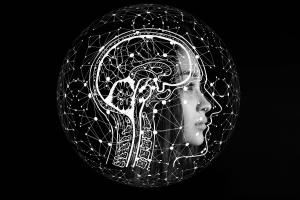Aspirin: Cliché or Real Treatment?
There’s no doubt that aspirin has become a cliché – almost a symbol of all that is wrong with headache treatment.

You know, the doctor who just tells you to “Take two aspirin and call me in the morning”. He doesn’t take your symptoms seriously, he doesn’t differentiate between different types of migraine or headache. No recognition of the cutting-edge medications or complimentary treatments.
Aside from that, it can be dangerous to take over the counter “painkillers”, especially if you’re taking them every week, without an expert diagnosis and observation.
That being said, the evidence still points to aspirin as a helpful treatment for headache and migraine. It’s become so cliché that it ends up being overlooked. But a new study is reminding us again that aspirin may still be one of the best drug treatments for migraine.
This is actually a review of 13 randomized trials showing the use of aspirin in thousands of patients with migraine. The review came from Florida Atlantic University’s Schmidt College of Medicine. Here’s a summary of their findings:
Their findings, published in The American Journal of Medicine , suggest that high-dose aspirin, in doses from 900 to 1,300 milligrams given at the onset of symptoms, is an effective and safe treatment option for acute migraine headaches. In addition, some but not all randomized trials suggest the possibility that daily aspirin in doses from 81 to 325 milligrams may be an effective and safe treatment option for the prevention of recurrent migraine headaches.
Migraine Headaches? Consider Aspirin for Treatment and Prevention
You may remember that we wrote about aspirin as a preventative in 2012, when it came out as a winner against preventatives such as propranolol (Inderal) and topiramate (Topamax). Considering the side effect that may accompany preventatives such as these, aspirin is an attractive option.
Of course if we can find ways to treat migraine without a daily drug, that would be preferable. But the strongest evidence seems to be for aspirin as an abortive.
We talked about best options for NSAIDs (which would include aspirin and ibuprofen) here: NSAIDs – Which One Should I Take For Headache? The take-away for aspirin is that is is certainly one of the most effective, with a recommended dose of 1000mg. However, it can be hard on the stomach. So, if possible, take it with food, and certainly use a brand you trust – if possible, a version that is not time release, but that has a coating to protect your gut.
Aspirin is still a good abortive. But remember, if you’re reaching for it regularly, you have a more serious problem and you need to look at other options.
For more information on this recent study, see Migraine Headaches? Consider Aspirin for Treatment and Prevention.



